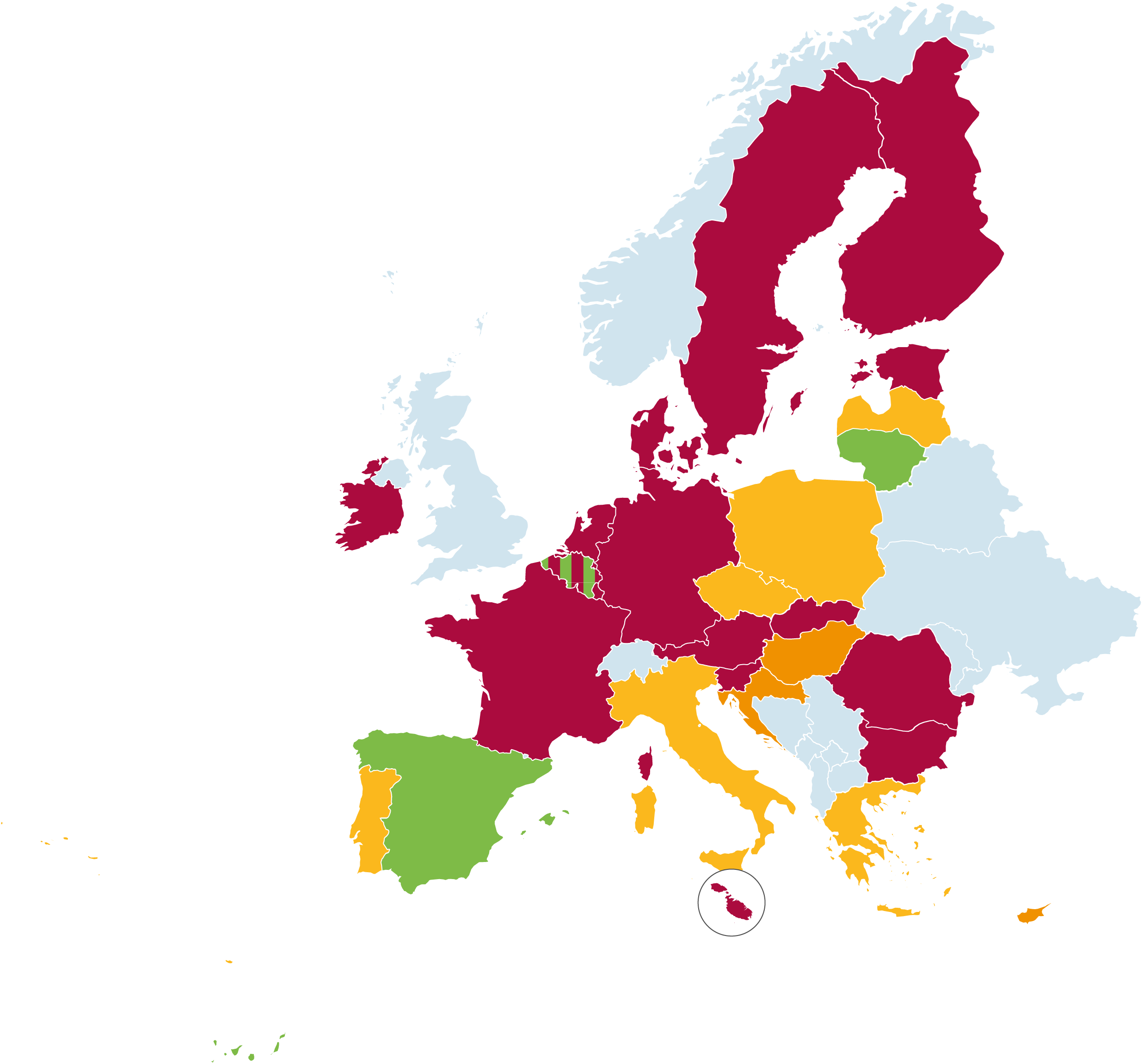Recovery & Resilience Funds
Recovery and Resilience fund
With €723.8 billion (in current prices) in loans (€385.8 billion) and grants (€338 billion) the RRF aims to promote the dual goals of the EU's digital and green transitions. It was set up as a temporary fund to allow countries to bounce back from the coronavirus pandemic. The Commission's Guidance on the Recovery and Resilience Plans explicitly calls for 37% of funds to be allocated to climate action (including renewable energy). This creates ample opportunities for public financing to support energy communities. In the recent guidelines of the Commission regarding the REPowerEU chapter of the Recovery and Resilience Plans, energy communities are highlighted as vehicles to tackle energy poverty.

Here is an explanation of the logic behind the colours:
How to understand and use this tracker
The map has been colour coded based on four tiers:
- First, a number of member states simply ignored energy communities. There were no mentions of energy communities or related concepts in the targeted operational programs. We marked those countries in red.
- Second, some member states mentioned energy communities in their programs but in a very limited capacity. Either energy communities were only included as a target amongst many others, or the scope of actors and activities was limited. We marked those countries in orange.
- Third, member states added energy communities to their programs. Energy communities were specifically targeted which allows us to hope for specific programs to be built tailored to their needs. However, energy communities where often then limited to a specific type of actor or a specific activity (e.g., energy communities consisting only of Municipalities, or businesses). This is not in line with the European definitions CEC and REC, and will thus not produce the expected impact. We marked those countries in yellow.
- Forth, the member states included energy communities in their programs, with specific programs targeting their needs, and with a full scope of activities and actors included. These fulfil the objectives and requirements of EU funding guidelines. We marked those countries in green.
The overall colour given to a certain fund, for a certain country, was tabulated based on 12 sub-criteria touching on various topics such as broader program design, transparency, and alignment with transposition.
Some countries have both national and regional Cohesion & Regional Development programs. We assessed these programs together, tabulating an average colour-grading, across the different available programs.
How we assessed each country’s funds implementation
The methodology underpinning the present research consisted of the following four steps:
- Creation of the subset of the 12 sub-criteria, on which the qualitative analytical framework was based.
- In-depth analysis, by national campaigners, of all the publicised materials regarding national public financing plans.
- Interviews and discussions with Managing Authorities and other relevant stakeholders from different Member States to complement the research inputs from Step 2.
- Iterative feedback on the collated material from the involved campaigners, as well as additional stakeholders.
Mentions
This analysis was carried through in collaboration with CEE Bankwatch Network, and Climate Action Network. We would like to specifically thank the following national organisations for their invaluable contributions to the research:
Updates to the tracker
This financing tracker will be frequently updated with new developments in how countries implement EU public funds in their national financing programmes.
In case you have additional information on your countries' EU public funds implementation or you have comments/corrections on the existing information, please contact directly chris.vrettos@rescoop.eu.